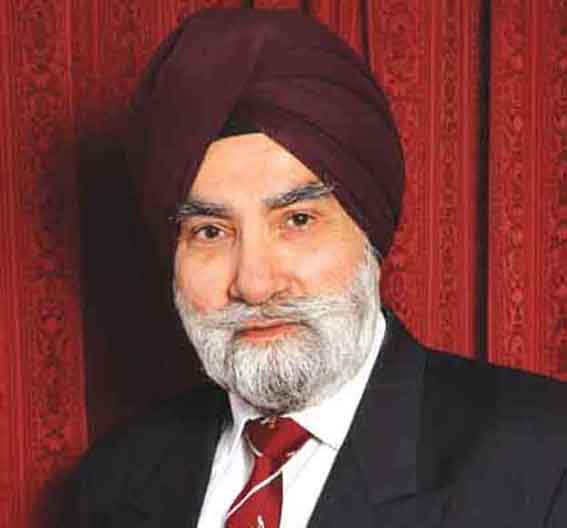Why So Few Sikhs in the House of Lords?

The appointments process has been tainted by allegations of sleaze and corruption for as long as anyone can remember. (Mike McCartney, article: Corruption in the House of Lords appointment process)
Given the Sikh population in the UK, the community qualifies for many more places in the House of Lords. This second chamber of UK Parliament is supposed to bring together the most experienced minds in different fields to provide some sort of check and balance while scrutinising the legislation proposed in the House of Commons.
Because the Lords are not elected, therefore, the process for nominations must be seen to be totally impartial and fair. Some sort of balance between the diverse British communities would be expected in the representation. That has not been the Sikh experience to date.
There is absolutely no suggestion that the selection standards for general suitability of applicants capable of articulating national and international issues should be lowered in anyway. Rather, the opposite, that the selection standards should be raised and widened to bring Sikh community experience to the House. Yet, without casting any doubt about the suitability of the current Sikh peers, there is hardly any experienced Sikh representation from grassroots level capable of raising issues of legitimate concern to the community.
In the meantime, there are allegations of sleaze, corruption and cronyism in the Lords appointments process going back over the decades. For example, during the Blair premiership there was the Cash for honours scandal which showed that the appointments process is corrupt. According to a political observer, public trust in the Lords is at rock bottom.
There is little doubt that nationally recognized highly qualified and experienced Sikhs are discouraged by the system to apply for entry to the Lords. Otherwise, Sikhs are known to excel in most professions and the number of senior Sikhs available to serve the country through the Lords has been increasing in recent years.
That places a question mark against the credibility of the House as an effective Second Chamber of the UK Parliamentary system. It is possible that outside i.e. foreign political influences interfere in the selection process, especially in the case of the Sikhs due to events in recent decades including the 1984 genocide of the Sikhs in India.
Institutional racism against visible Sikh identity has been shown by the number of Sikh cases which have been taken to the law courts. Many succeeded while some others, including the right to be statistically counted and monitored to secure a level playing field, did not. From the manner in which Sikhs continue to be made invisible as a community, there is every reason to believe that more cases of glaring discrimination will come before the courts.
While I have not seen any statistics, if any are kept, of the number of qualified Sikhs, especially identity Sikhs, who apply for Lords appointments, the well-publicised allegations of corruption in the nominations and selection process do not inspire much confidence in the system.
Such doubts about the selection process places a question mark over the credibility and effectiveness of the unelected and undemocratic second chamber in the UK Parliamentary system. A journalist, Tommy Sheppard, wrote: The House of Lords is an affront to democracy &ndash it is time to abolish it.
The Sikh experience so far, would support that allegation and conclusion.
Gurmukh Singh OBE
Principal Civil Servant Retd (UK)